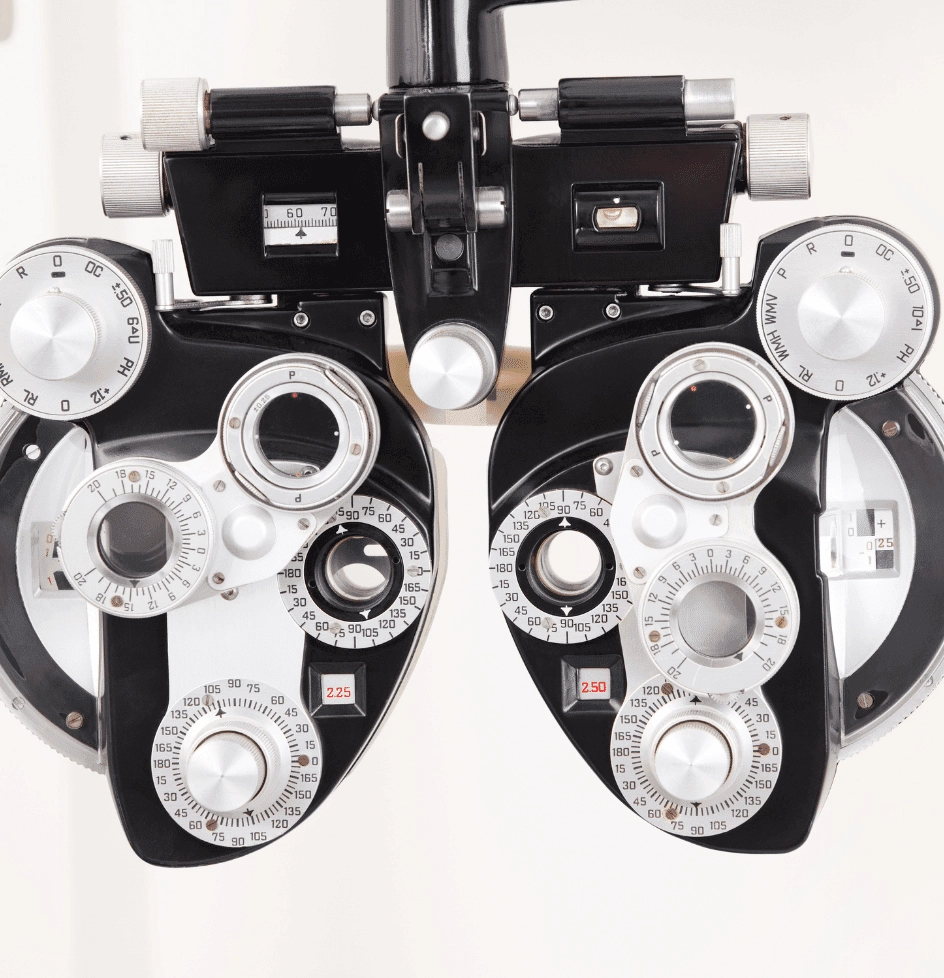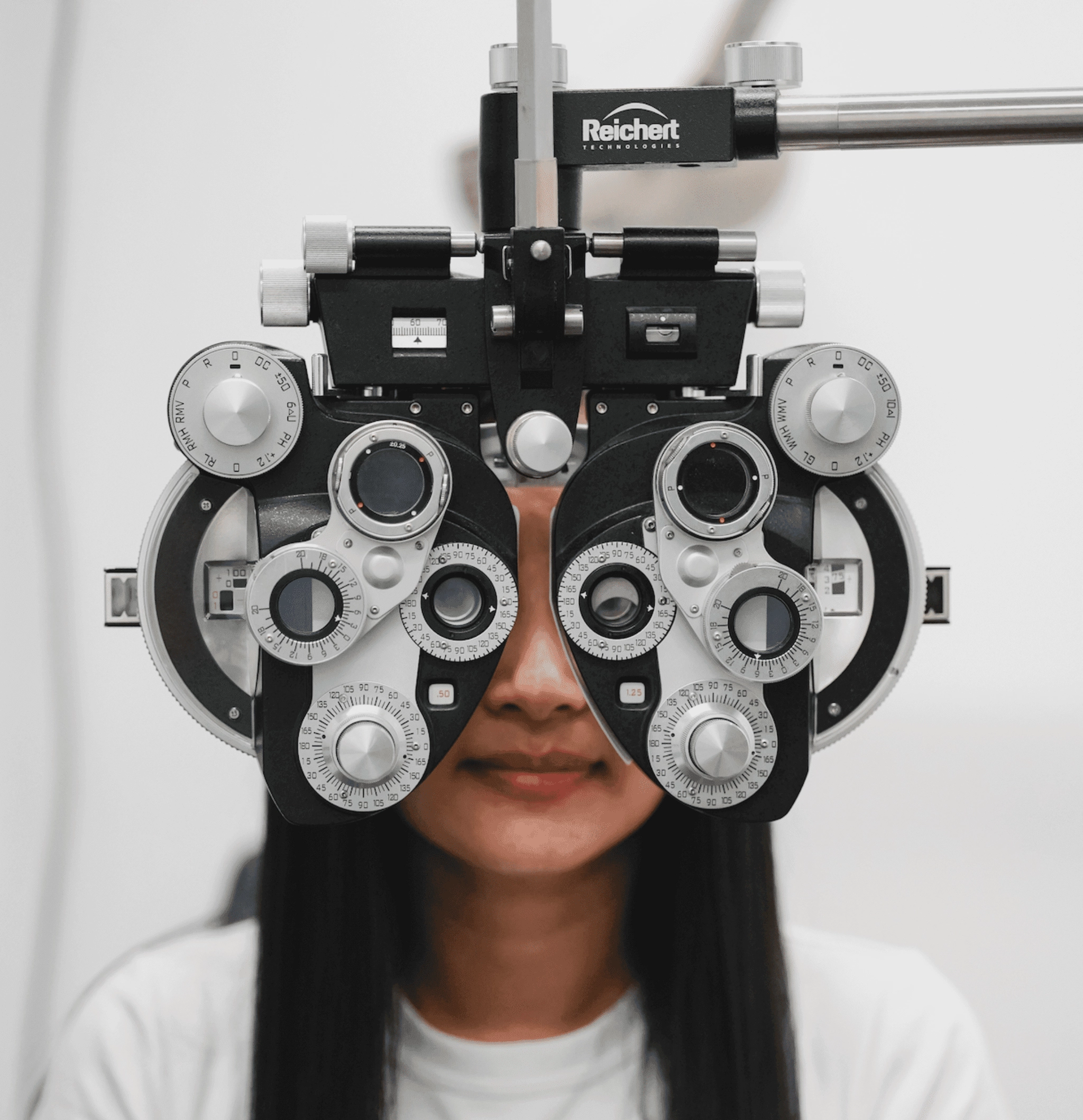Regular eye exams are necessary to maintain healthy eyes and vision. These regular checkups are very helpful in detecting eye diseases or vision problems as early as possible. And because many eye conditions have no obvious symptoms in the early stages, eye exams help to prevent any damage or sight loss.


When should you regularly book a vision eye exam?
When you feel any vision change, e.g.: obscured vision, loss of vision, blurred vision or double vision
When you feel any pain or red eyes
When there is excessive tearing in your eyes
When you feel any excessive eye fatigue or strain stress.
Why are eye exams necessary?
Vision tests
Thanks to an eye exam and vision test, your optometrist can determine if you need corrective lenses, such as glasses or contact lenses. Ensuring you can see well in your daily life can help you have a better quality of life.
Eye health
Various eye problems and diseases, such as glaucoma, cataracts, macular degeneration, hypertension, and hypercholesterolemia, can be detected and monitored with routine eye exams from our optometrists. Early detection is essential to stop or delay vision loss and adequately treat these disorders.
Systemic wellness of your eye
Some systemic health conditions, including autoimmune diseases, diabetes, and high blood pressure, might initially be seen in your eyes. During an eye exam, an optometrist can identify any warning signs so you can visit a doctor later.
Developmental eye problems
Regular kid eye exams are essential for a child’s entire growth. Untreated vision issues can affect a person’s ability to study, interact with others, and grow physically.
Eye movement
Eye exams can establish how well your eyes operate together and identify any conditions like amblyopia (lazy eye) or strabismus (misaligned eyes), which can impair depth perception, focus, and overall visual acuity.
Symptoms of digital eye strain
Digital eye strain is more prevalent due to the growing use of digital devices. It is possible to maintain eye comfort and lessen the damaging effects of blue light emitted by displays with the help of an optician or optometrist.
The Canadian Association of Optometrists recommends that adults and children with good vision and no eye condition should have an eye checkup at least every two years and once a year if they are above 50.
What are common vision tests for adults?
An optometrist will often perform several tests and procedures during an eye exam to assess your vision and eye health.
The most common adult vision tests are listed below:
Visual acuity test: You will be required to read letters or numbers from a Snellen chart that has been put at a certain distance during this eye chart test. This examination measures your far vision.
Retinoscopy: Your optometrist will do this test by shining light into your cornea to look for signs of astigmatism, presbyopia, hyperopia, or myopia.
Refraction Test: A refraction is an eye exam determining a person’s contact lens or eyeglass prescription.
Slit lamp test: You will rest your chin and forehead against a machine during this test. Your optometrist will examine your eyes thoroughly to rule out any eye disorders and diseases.
Eye movement test: Your optometrist will ask you to follow an object with your eyes as it moves in various directions to test your eye muscles. This test aids in identifying any muscle limitations or issues with eye coordination you may have.
Eye pressure testing: This will establish if you are at risk for glaucoma; your eye doctor may use a tonometer to evaluate the pressure inside your eyes.
Ophthalmoscopy (Fundus Test): This test is used to view the posterior pole of the eye, aka the Retina, to detect cataracts, glaucoma, retinopathy, and macular diseases.
Tips to prepare for an eye exam
You might be asked to complete some paperwork to provide your medical history right before your eye test. Using all this information, your optometrist can evaluate your eye health and risk factors. And if you wear glasses, always take them with you for an eye exam.
Following the eye exam, your optometrist will review the findings with you and suggest any required treatments and doctor consultations. If you need glasses or contacts, your prescription will be given to one of our optometrists
Haven’t had an eye exam before? Concerned that you have missed your recommended eye exam every two years? Contact Josephson today and book an appointment!
Read also


